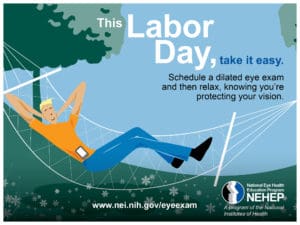 NICOA works on behalf of American Indian and Alaska Native Elders across Indian Country every day. However, on September 21, we make a special note to honor all our Native Elders, designated as ‘Indian Elders’ Day’.
NICOA works on behalf of American Indian and Alaska Native Elders across Indian Country every day. However, on September 21, we make a special note to honor all our Native Elders, designated as ‘Indian Elders’ Day’.
You can celebrate this day too by spending some quality time with your Elders. Bring them some flowers or a favorite treat you know they will love. Offer to do some chores or errands. Bring your grandchildren and ask your Elders to share stories and their wisdom with your family. Visit those who are ill or in a care facility. Whatever way you choose to honor your Elders – take this opportunity to celebrate their presence and contributions in your life!
____________________________________________________________________________________________________
September is also Healthy Aging Month, designed to help bring national attention on the positive aspects of growing older, and for taking personal responsibility for one’s health – be it physically, socially, mentally, or financially. In this blog, we bring a focus on eye health.
The National Eye Health Education Program provides resources and information for individuals of all ages, including Elders and offers answers to common questions about eye health.
Common vision problems as we age
Many people age without ever experiencing changes in their vision. But, there are some vision changes that are common with the natural aging of the eye, including difficulty seeing objects clearly, even close up; a decline in sensitivity, such as being able to distinguish colors like blue from black; and the need for more light. These changes can often be corrected with a new prescription for glasses or improved lighting. However, it is important for older adults to know the difference between changes that are normal and those that are not.
What are the most common age-related eye diseases and conditions?
The most common eye diseases and conditions that affect older adults include age-related macular degeneration (AMD), cataract, diabetic retinopathy, dry eye, glaucoma, and low vision. Many of these diseases and conditions do not have noticeable symptoms in their early stages, but they can be detected through a comprehensive dilated eye exam. Treatment is most effective when an eye disease is diagnosed early.
Why is it important to raise awareness about age-related eye diseases?
Many people think that vision loss is a normal part of aging and are unaware of what they can do to protect their sight. Lifestyle factors—such as not smoking; maintaining a healthy weight; engaging in physical activity; controlling diabetes; eating a healthy diet that includes fish high in omega-3s and dark, leafy greens; and protecting eyes from the sun—can all help prevent the onset or delay the progression of eye disease. Comprehensive dilated eye exams should also be a part of a person’s routine health care, especially if he or she is over age 50.
Leave a Reply